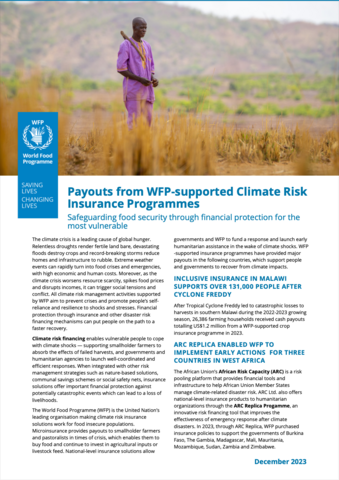
Climate risk insurance enables vulnerable people to cope with climate shocks — supporting smallholder farmers to absorb the effects of failed harvests, and governments and humanitarian agencies to launch well-coordinated and efficient responses. When integrated with other risk management strategies such as nature-based protection, communal savings schemes or social safety nets, insurance solutions offer important protection against potentially catastrophic events which can lead to a loss of livelihoods. Microinsurance provides payouts to smallholder farmers in times of crisis, which enables them to buy food and continue to invest in agricultural inputs or livestock feed. Sovereign insurance solutions allow governments and WFP to fund and launch early humanitarian responses in the wake of climate shocks. WFP-supported insurance programmes have provided major payouts in the following countries, which support people and governments to recover from climate impacts.
